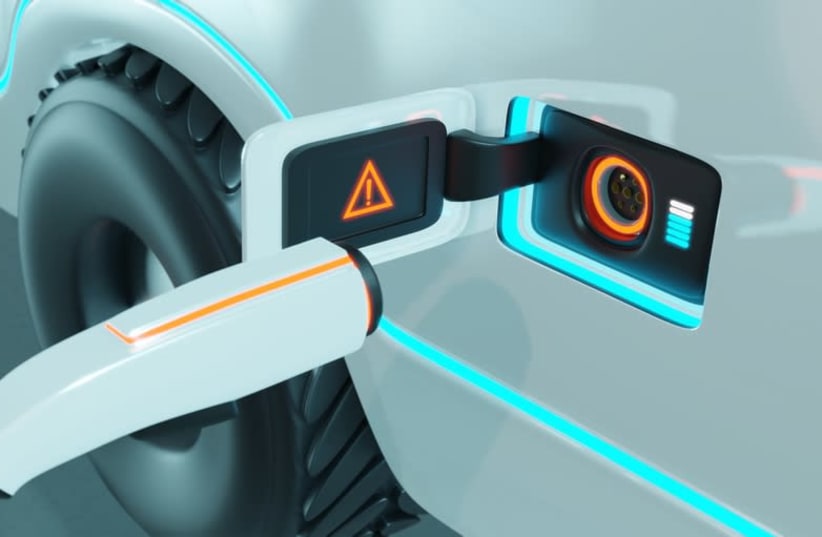Despite what the title says, electric cars are already the present - and the future. These environmentally-friendly options have become much more commonplace today than they were 10 years ago, with a 40% year-on-year increase. These cars come with many benefits and a nice range of luxury and more budget-friendly options available in addition to the environmental implications.
Let’s take a deep dive into why electric cars (also called electric vehicles, or EV for short) will become the mainstream ride of the future.
1. They’re cheaper in the long run
While batteries do run out, which means they will need replacement after a few years, electric vehicles are still cheaper than petrol or diesel cars. Electrical motors have much fewer parts than fuel-based engines, which leads to less wear and tear, so they’ll require less servicing and repairs cost less. On top of that, many countries are also starting to adopt tax incentives and business grants for EVs.
The other cost-saving factor is fuel, of course. Oil prices will continue to hike in the future as resources run out. Not to mention being hostage to continued fuel tax levies. Electric vehicles, on the other hand, have none of those issues. They can even be charged at home with a home charging unit, which costs a bit of money to install but is still very affordable.
2. Government incentives are increasing production
Government agencies around the world have and continue to provide policy-driven support for electric vehicle production and adoption. The main regulatory incentive is to decrease CO2 emissions to achieve a future where zero-emission vehicles are the norm. Thus, countries like Norway are starting to make pledges to phase out internal combustion engine vehicle sales.
3. Public and large transport vehicles are making the jump
Consumer vehicles aren’t the only market segment that will be getting an influx of electric car options. EV adoption in the public and commercial sectors is slow going right now due to the cost of replacing existing infrastructure. But the long-term cost, environmental, and health benefits of switching to electric vehicles is pushing both industries in that direction. Constant regulatory resolutions aid this.
4. Fossil fuels aren’t sustainable options
There’s speculation that the world will run out of fossil fuels in as early as 53 years. Maybe even less. That means there’s a hard limit on how long people can still operate the way they do before these resources become so scarce that prices skyrocket. Eventually, there won’t be enough to go around and whole industries will crash if things don’t change.
That’s why many policy-makers and companies are trying to make the switch to electric vehicles now. Of course, this also means that electricity generation has to turn a new leaf. Many countries have started banning coal power plants and choosing more sustainable options, which bodes well for the future. This also means electric vehicles don’t have a chance of running out of “fuel” resources anytime soon.
5. A more enjoyable driving experience
One of the first things people notice about electric cars is how quiet they are. This, coupled with the fact that they have instant torque, makes them a joy to drive. They also have a lower center of gravity, which provides both driving and safety benefits.
Driving-side, this means better grip and steering during turns. Safety-wise it means the cars have less chance of rolling over and the absence of fuel means less risk of fires or explosions. On top of that, the electric cars being rolled off the assembly line today have the best to offer in terms of safety and luxury. They often come with the latest specs and features and are built to handle collisions better as well.
A Note About Security
Despite all of the benefits of switching to electric vehicles, there is one downside that most consumers don’t normally think about. Security.
No, this has nothing to do with the car possibly being stolen, but rather with hackers and other online threats.
As technology continues to improve, a lot of that gets integrated into cars and the way people live their everyday lives. Having an on-board GPS or using public Wi-Fi to listen to music or search for suggestions/directions while driving isn’t anything strange anymore. Autonomous internet-connected cars are also starting to become more normal. But so are digital threats.
As far back as 2016, there had been reports of electric vehicles being susceptible to hacks. So, taking extra precautions like using a VPN while traveling will become essential. What is a VPN? This cybersecurity tool secures your internet connection and keeps all your data safe wherever you are. It’s a great way to stay safe on the internet.
Conclusion
All things considered, it’s safe to say that current fuel-based cars aren’t what people will be driving around in the future. Right now, electric vehicles have the highest chance of being the car of choice 20 years down the line, but who knows? Maybe someone comes up with a way for algae to power up cars, and suddenly the industry takes another direction instead.
